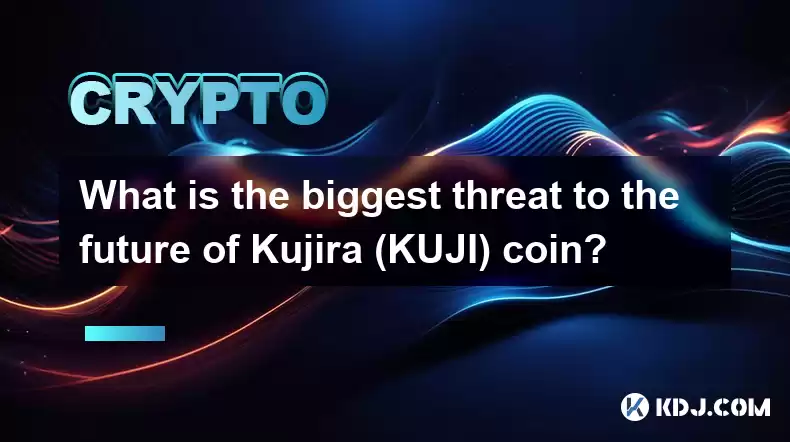-
 Bitcoin
Bitcoin $120300
1.41% -
 Ethereum
Ethereum $4296
2.75% -
 XRP
XRP $3.220
1.46% -
 Tether USDt
Tether USDt $0.9997
-0.04% -
 BNB
BNB $801.6
0.14% -
 Solana
Solana $179.9
0.22% -
 USDC
USDC $0.9998
-0.01% -
 Dogecoin
Dogecoin $0.2302
-0.24% -
 TRON
TRON $0.3405
-0.39% -
 Cardano
Cardano $0.7965
0.53% -
 Hyperliquid
Hyperliquid $44.80
2.57% -
 Chainlink
Chainlink $21.95
2.94% -
 Stellar
Stellar $0.4438
1.68% -
 Sui
Sui $3.767
-1.42% -
 Bitcoin Cash
Bitcoin Cash $584.4
3.24% -
 Hedera
Hedera $0.2554
-0.59% -
 Ethena USDe
Ethena USDe $1.001
-0.02% -
 Avalanche
Avalanche $23.57
0.00% -
 Litecoin
Litecoin $126.6
4.64% -
 Toncoin
Toncoin $3.339
0.94% -
 UNUS SED LEO
UNUS SED LEO $9.001
-0.49% -
 Shiba Inu
Shiba Inu $0.00001320
-0.92% -
 Uniswap
Uniswap $10.84
3.36% -
 Polkadot
Polkadot $3.945
-1.39% -
 Cronos
Cronos $0.1663
4.77% -
 Ethena
Ethena $0.8136
8.48% -
 Dai
Dai $0.0000
0.00% -
 Bitget Token
Bitget Token $4.391
-0.51% -
 Monero
Monero $268.0
0.80% -
 Pepe
Pepe $0.00001169
-1.57%
What is the biggest threat to the future of Kujira (KUJI) coin?
Kujira coin faces potential threats from market volatility, cybersecurity breaches, regulatory uncertainty, and competition in the dynamic DeFi landscape.
Dec 25, 2024 at 08:31 am

Key Points:
- Understanding Kujira (KUJI) and Its Role in the DeFi Ecosystem
- Identifying the Potential Threats Facing Kujira Coin
- Risks Associated with Market Volatility and Price Fluctuations
- Vulnerability to Hacks, Scams, and Cybersecurity Breaches
- Impact of Regulatory Uncertainty and Government Actions
- Competition from Rival DeFi Projects and Blockchain Platforms
- The Importance of Long-Term Vision and Effective Strategies
Potential Threats to the Future of Kujira (KUJI) Coin:
1. Market Volatility and Price Fluctuations:
- Cryptocurrency markets are highly volatile, with prices subject to sudden and unpredictable swings.
- Factors such as economic news, market sentiment, and regulatory changes can significantly impact KUJI's value.
- Extreme volatility can deter investors and hinder widespread adoption.
2. Hacks, Scams, and Cybersecurity Breaches:
- The DeFi ecosystem is susceptible to cyberattacks, scams, and malicious activity.
- Exploits targeting smart contracts, phishing attacks, and rug pulls can compromise user funds and erode trust in the platform.
- Kujira needs robust security measures to protect its users and maintain its reputation.
3. Regulatory Uncertainty and Government Actions:
- Governmental regulations and policies can have a profound impact on the cryptocurrency industry.
- Unclear or unfavorable regulatory frameworks can hinder innovation, stifle adoption, and create uncertainty for investors.
- Kujira needs to navigate the regulatory landscape effectively and stay compliant with evolving regulations.
4. Competition from Rival DeFi Projects and Blockchain Platforms:
- The DeFi landscape is highly competitive, with numerous projects vying for users and market share.
- Rivals with superior technology, attractive incentives, or a more extensive ecosystem can attract users away from Kujira.
- Kujira needs to differentiate itself and demonstrate its unique value proposition to maintain a competitive edge.
FAQ:
Q: Is Kujira (KUJI) a good investment?
A: The potential risks and rewards of investing in KUJI depend on factors such as market conditions, the risk tolerance of the investor, and the long-term vision of the project.
Q: What is the expected price of KUJI in the future?
A: Future price predictions are speculative and highly uncertain, as they are influenced by numerous factors beyond the control of any individual or organization.
Q: How can I protect myself from potential threats to KUJI coin?
A: Investors can minimize risks by conducting thorough research, investing only within their means, diversifying their portfolio, and using secure storage solutions.
Q: What is the role of the Kujira community in the future success of the project?
A: The Kujira community plays a crucial role in driving adoption, providing feedback, and contributing to the project's development and governance.
Q: What is the long-term vision for the Kujira (KUJI) project?
A: The long-term vision of Kujira is to build a scalable and user-friendly DeFi ecosystem that empowers users with advanced financial tools and opportunities.
Disclaimer:info@kdj.com
The information provided is not trading advice. kdj.com does not assume any responsibility for any investments made based on the information provided in this article. Cryptocurrencies are highly volatile and it is highly recommended that you invest with caution after thorough research!
If you believe that the content used on this website infringes your copyright, please contact us immediately (info@kdj.com) and we will delete it promptly.
- DYDX Price Stays Afloat: Navigating Neutral Momentum with Technical Indicators
- 2025-08-11 20:50:12
- Superman Takes Flight: A Deep Dive into the Comic Program and Coin Medals
- 2025-08-11 20:30:12
- JasmyCoin's Bullish Momentum: Riding the Daily Gain Wave
- 2025-08-11 21:10:12
- Shiba Inu's Comeback Trail and the Meme Coin Mania: Can $SHIB Deliver a 12,000x Return?
- 2025-08-11 18:30:11
- Proof of Trust, Transparency, and User Safety: Keeping Crypto Real
- 2025-08-11 18:50:12
- Pudgy Penguins, Bitcoin Penguins, and the $22M Meme Coin Mania: A New York Perspective
- 2025-08-11 17:10:11
Related knowledge

How to purchase Aragon (ANT)?
Aug 09,2025 at 11:56pm
Understanding Aragon (ANT) and Its PurposeAragon (ANT) is a decentralized governance token that powers the Aragon Network, a platform built on the Eth...

Where to trade Band Protocol (BAND)?
Aug 10,2025 at 11:36pm
Understanding the Role of Private Keys in Cryptocurrency WalletsIn the world of cryptocurrency, a private key is one of the most critical components o...

What is the most secure way to buy Ocean Protocol (OCEAN)?
Aug 10,2025 at 01:01pm
Understanding Ocean Protocol (OCEAN) and Its EcosystemOcean Protocol (OCEAN) is a decentralized data exchange platform built on blockchain technology,...

Where can I buy UMA (UMA)?
Aug 07,2025 at 06:42pm
Understanding UMA and Its Role in Decentralized FinanceUMA (Universal Market Access) is an Ethereum-based decentralized finance (DeFi) protocol design...

How to buy Storj (STORJ) tokens?
Aug 09,2025 at 07:28am
Understanding Storj (STORJ) and Its Role in Decentralized StorageStorj is a decentralized cloud storage platform that leverages blockchain technology ...

Where to find the best price for Audius (AUDIO)?
Aug 11,2025 at 04:01pm
Understanding the Basics of Ethereum StakingEthereum staking refers to the process of locking up ETH tokens to support the security and operations of ...

How to purchase Aragon (ANT)?
Aug 09,2025 at 11:56pm
Understanding Aragon (ANT) and Its PurposeAragon (ANT) is a decentralized governance token that powers the Aragon Network, a platform built on the Eth...

Where to trade Band Protocol (BAND)?
Aug 10,2025 at 11:36pm
Understanding the Role of Private Keys in Cryptocurrency WalletsIn the world of cryptocurrency, a private key is one of the most critical components o...

What is the most secure way to buy Ocean Protocol (OCEAN)?
Aug 10,2025 at 01:01pm
Understanding Ocean Protocol (OCEAN) and Its EcosystemOcean Protocol (OCEAN) is a decentralized data exchange platform built on blockchain technology,...

Where can I buy UMA (UMA)?
Aug 07,2025 at 06:42pm
Understanding UMA and Its Role in Decentralized FinanceUMA (Universal Market Access) is an Ethereum-based decentralized finance (DeFi) protocol design...

How to buy Storj (STORJ) tokens?
Aug 09,2025 at 07:28am
Understanding Storj (STORJ) and Its Role in Decentralized StorageStorj is a decentralized cloud storage platform that leverages blockchain technology ...

Where to find the best price for Audius (AUDIO)?
Aug 11,2025 at 04:01pm
Understanding the Basics of Ethereum StakingEthereum staking refers to the process of locking up ETH tokens to support the security and operations of ...
See all articles

























































































